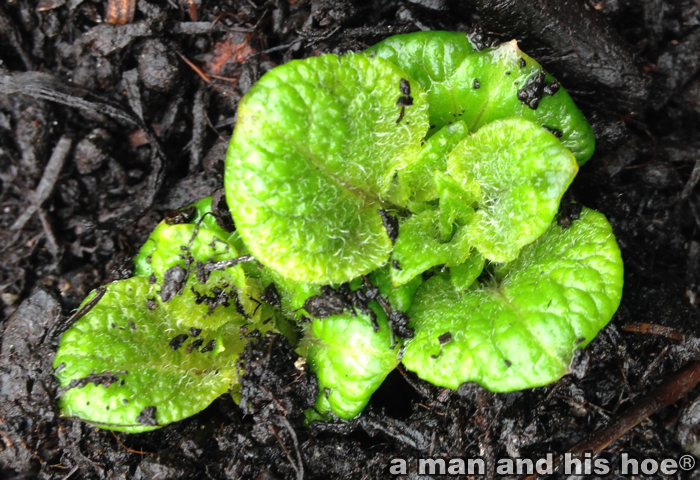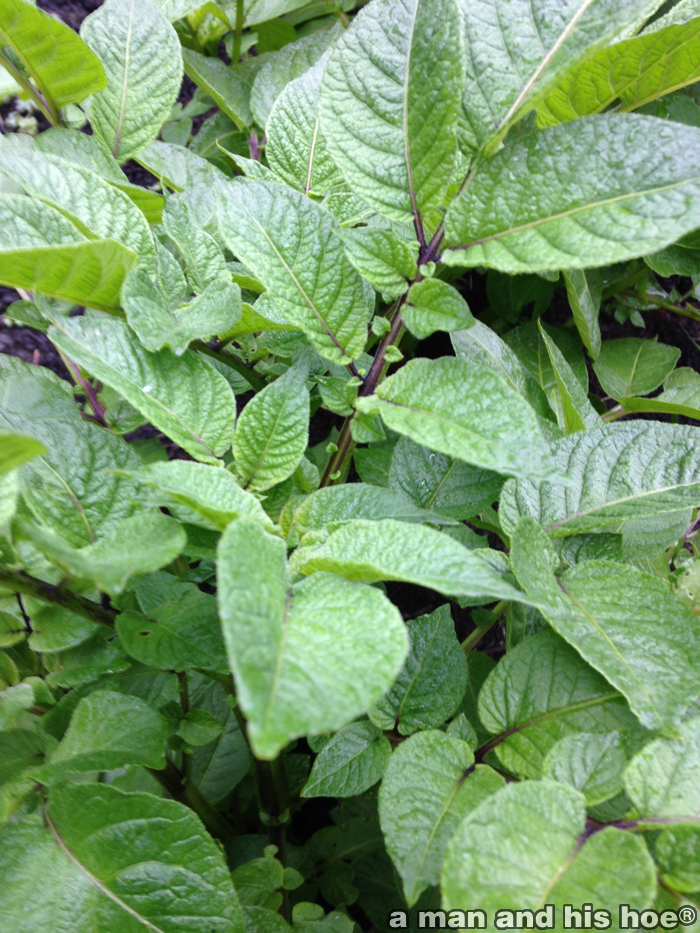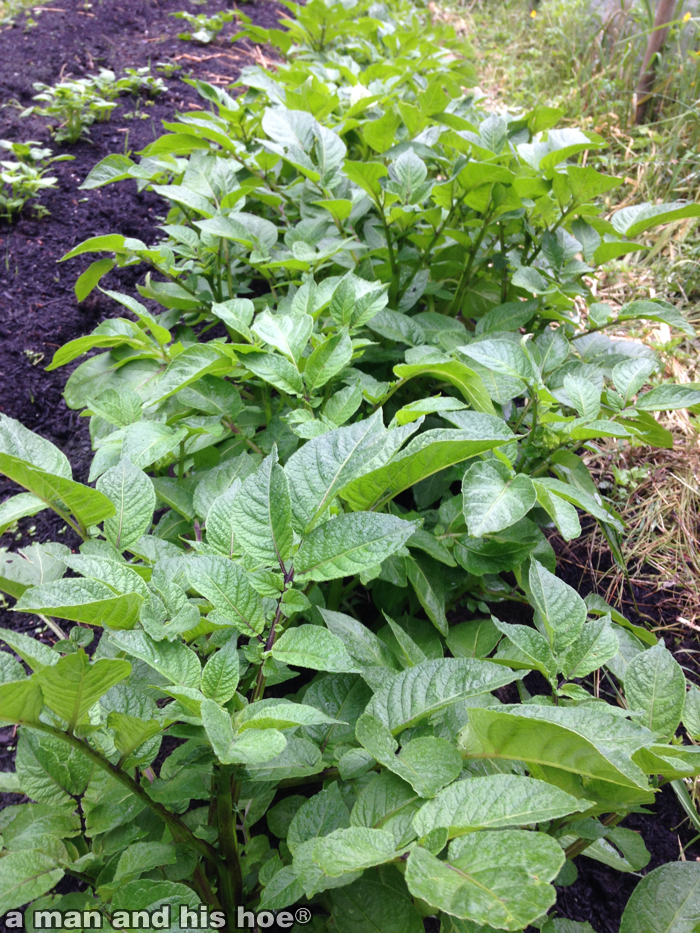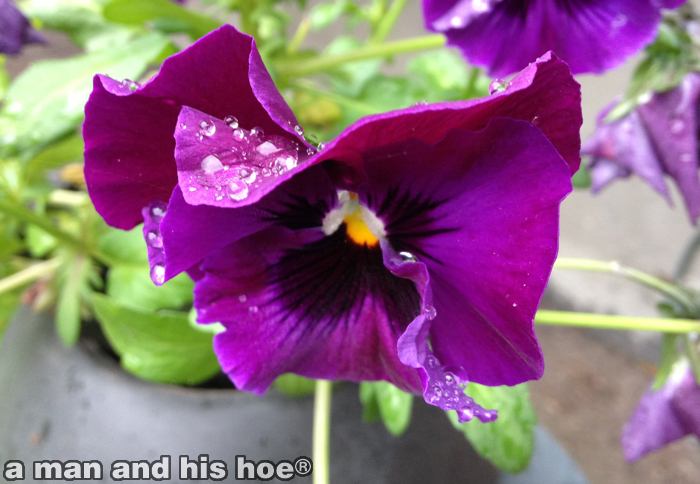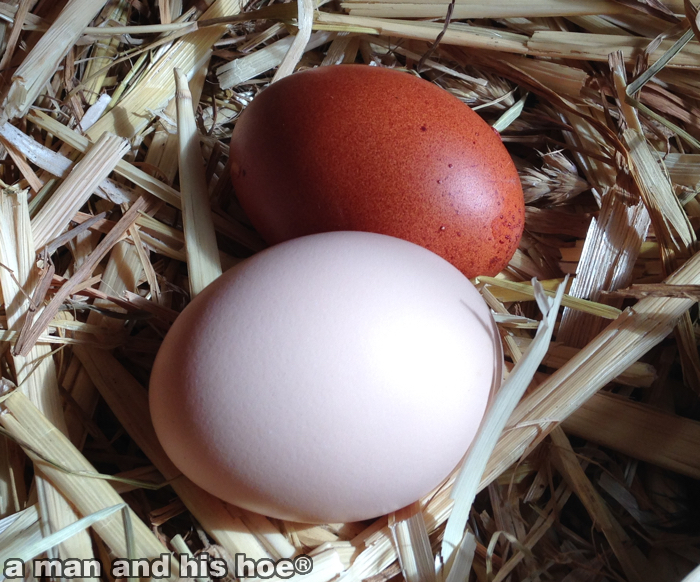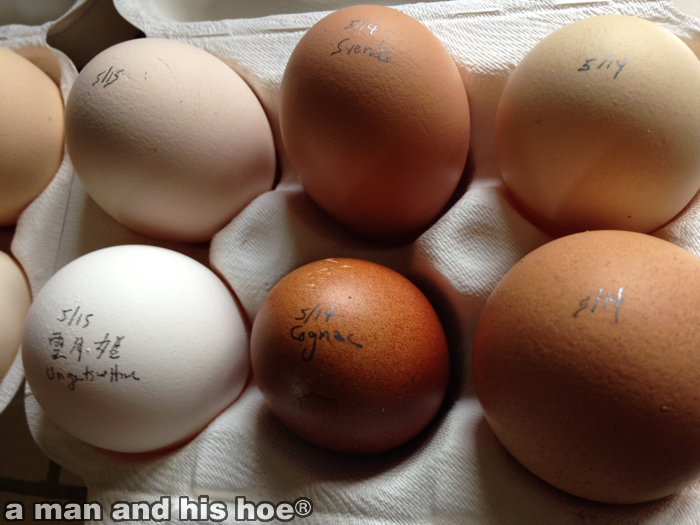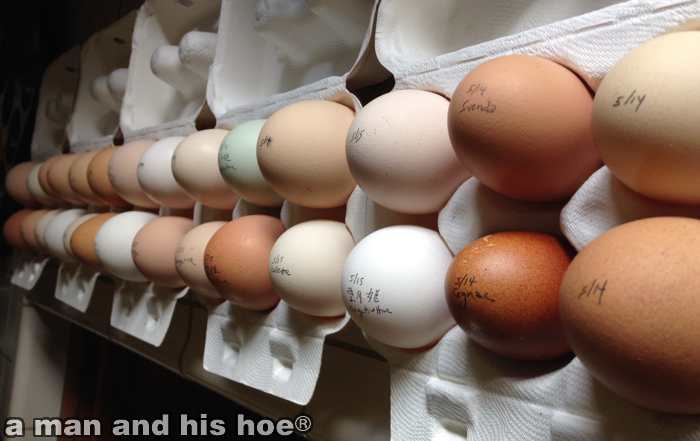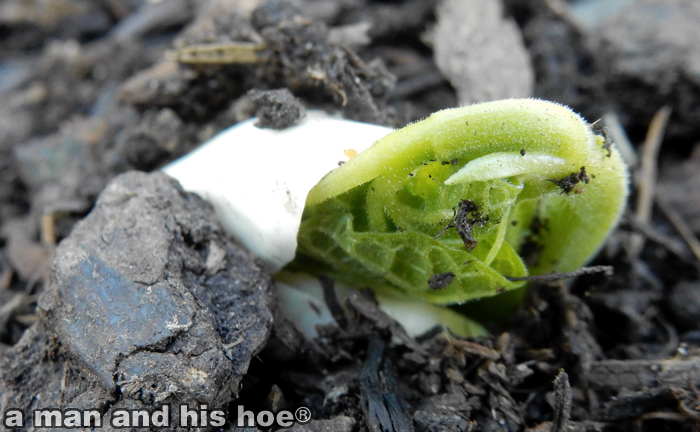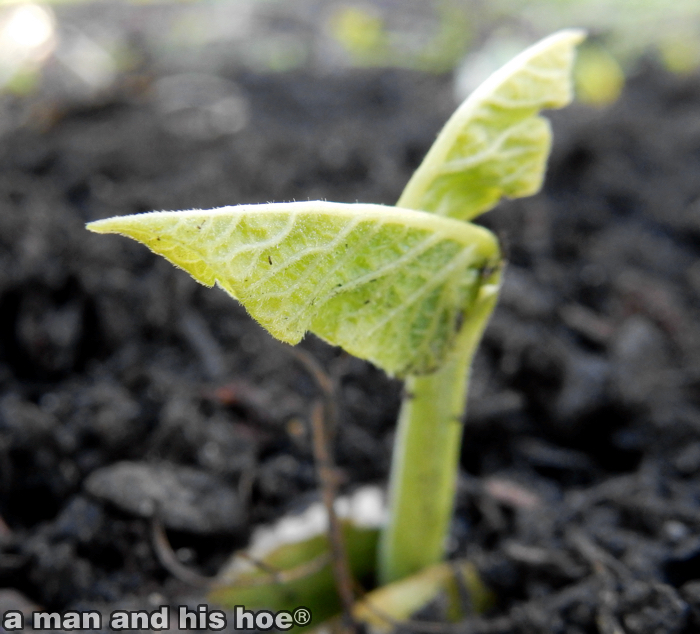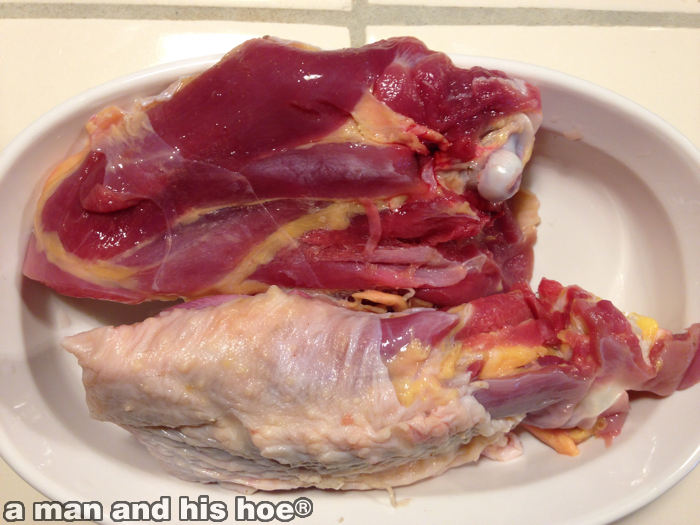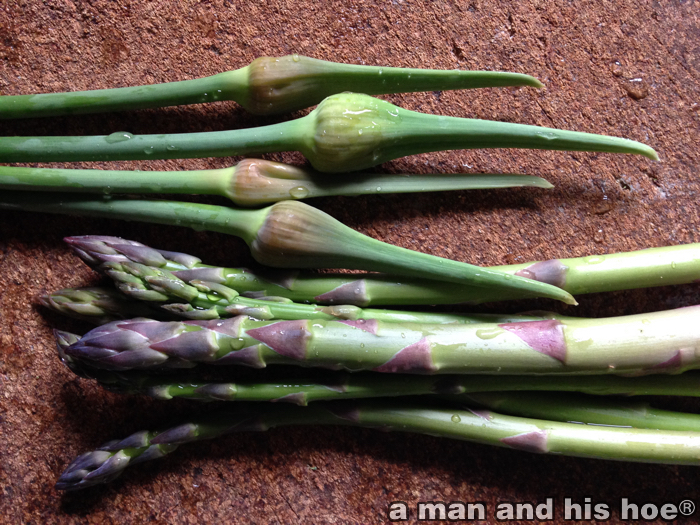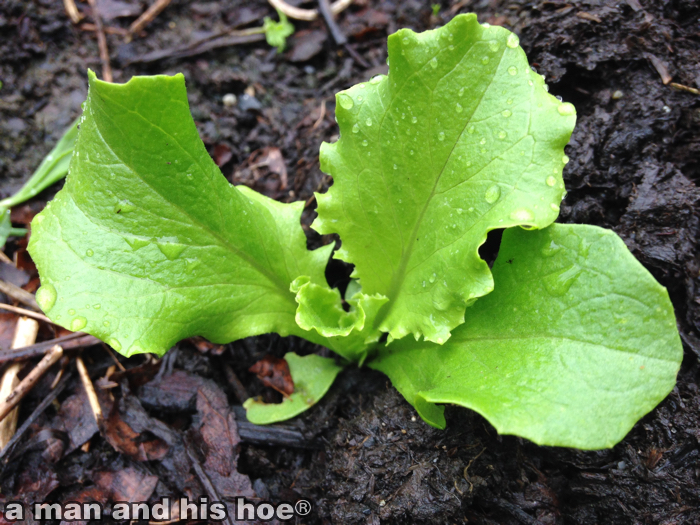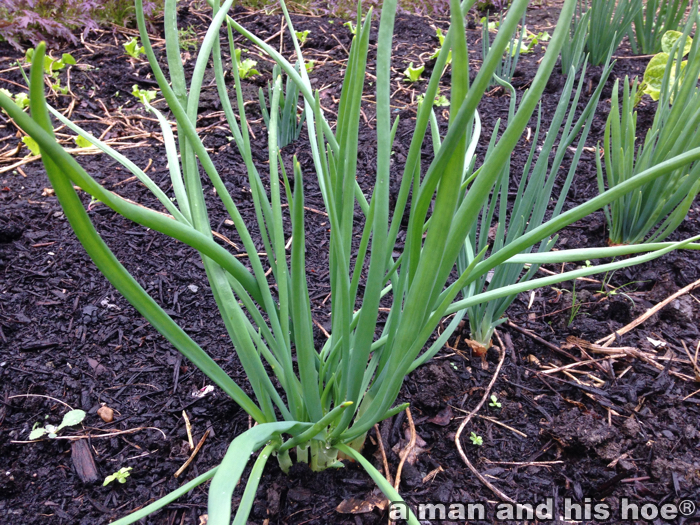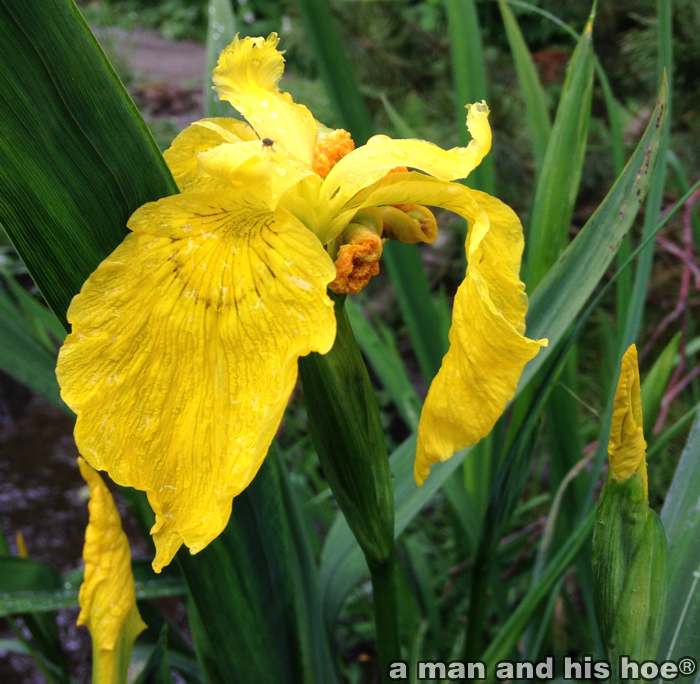
It’s not raining, it’s not pouring, it’s just misting, as if we’re up in the clouds. It’s fitting weather for iris and pansies to bloom, and for potatoes to grow. The row of purple potatoes I planted in March are high enough to mound. They are growing vigorously. The potatoes I planted in earl April are coming along nicely, and the ones I planted at the end of April are starting to sprout.
The misty weather is also good for catching slugs. Usually they come out after I’ve gone to bed. It’s like they are waiting for the bedroom lights to go out before they venture out of their daytime hiding places. But when it is misty like today, they come out in droves in midday. I feel bad hunting them down with a pair of scissors. Snip, snip, I go, cutting them in two and sending them off to an early death. The potatoes and radishes and cabbage and lettuce and kale cheer me on. Snip, snip, snip.
